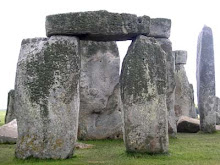The history of the English Folk Tradition lies with the history of the agricultural and labouring classes of our past. At one time they were an integral part of the calendar year, and many of them echoed even further back to the ancient pagan traditions so vitally bound up with the continual round of sowing, planting and harvesting.
Surprisingly, in a country which developed and introduced the Industrial Revolution these traditions and customs have been incredibly tenacious - up until recently. With what appears to be deliberation, the government with the assistance of the main stream media, have attempted to denigrate all that England stood for and to destroy all semblence of our true culture.
But, if we are to move forward then we must understand where we have come from - and I don't mean the disgraceful revisionist history being taught in the schools and universities at the moment. Revisionist history whose only aim appears to be to destroy our pride in our people, our culture and our nation. People without pride become the louts on the streets and people deprived of their history become displaced and displeased.
My aim is to re-introduce the people of England to some of the cultural practices that they may not have been aware of - and as our traditions are seasonal - so this blog will reflect that as well.
But I wonder how many of the old ways are now left; it will be interesting to see!
So let's start in January - perhaps you were not aware that it is unlucky to give credit on the 1st of January or to cause someone to be in your debt by lending them something!
After the Christmas season the darkness of winter descends again. And the customs of the land reflect the short days and the long winter evenings, but the winter solstice has now passed and the next cycle of ploughing and planted is not that far off.
In our pagan past there would have been gods and goddesses to be propitiated to ensure a successful harvest; the remnants of these customs survive in the mummers plays and the midwinter sword dances.
Huddled around the fire at night, the English would spend their time passing on the tales of the heros, or playing Nine Men's Morris and that perennial pub favourite 'Shuffleboard'.
In England today you might still be able to catch the Mummers Plays and Sword Dancing in Durham, Northumberland (I'm a traditionalist). In Yorkshire the principle teams that I once knew were at North Skelton; Handworth; and Lingdale - and the midwinter sword dances had a symbolism which still echoes with us.
Danced around midwinter they symbolised the death of the old year and the promise of the year to come. The Yorkshire dancers used the traditional long, flexible steel swords, while the less ambitious chose the long wooden swords. After a number of sequences portraying the coming of the new and the going of the old years; the swords were secretly intertwined (dancers movements hidden by the closeness of the dancing circle) and then on cue; one dancer would hold the interlocked sword knut triumphantly aloft to admiring applause.
Do not be dismayed by the sneering putdowns by the so-called modernists, or the dismissal of our traditions by the pseudo-intellectuals. Those that patronisingly laugh at the colourful costumes of the Morris Dancers - or who throw their hands up in horror denouncing as 'racist' the five century old tradition of 'blacking up' by our dancers are also the ones who would gaze in awe and admiration at the Swiss Guards in the Vatican City!
They have little love for, and certainly limited knowledge of who we are and where we have come from. They deserve our pity not our anger. Let us trust that we will educate them in the ways of the English so that they can learn to love the place of their birth and the customs of their people.
Alas, like George Orwell I am not optimistic - and if we cannot, then like him I am content to despise them as they despise us!
Subscribe to:
Post Comments (Atom)




No comments:
Post a Comment